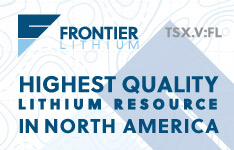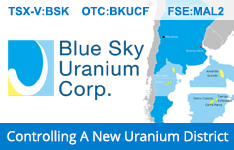Encouraging results from recent clinical trials testing the efficacy of using psychedelics like arketamine, LSD, and psilocybin to treat mental health disorders have bumped up biotechnology firms working in the space. They've also pushed some states closer to decriminalization.
Public stigma toward this class of drugs is fading as continued advances in psychedelic therapies show potential to drive an investment boom that could reshape the future of medicine and mental health therapies.
Related Stocks: MindMed (MNMD), Compass Pathways (CMPS)
Market Poised to Grow as Mental Health Disorders Surge
According to Research and Markets, the global psychedelic market was valued at $4.75 billion in 2020, and that figure is projected to rise to $10.75 billion in 2027. Per Canaccord Genuity, the potential market opportunity for psychedelics may be as high as $100 billion globally.
To receive all of MRP's insights in your inbox Monday–Friday, follow this link for a free 30-day trial. This content was delivered to McAlinden Research Partners clients on May 24.
In 2019, roughly 51.5 million adults in the United States were living with some form of mental illness. A report by the Institute for Health Metrics and Evaluation found that 10% of the world population suffers from mental health issues, and effects from the pandemic could drive that number higher.
D Magazine writes that number of potential patients for psychedelic treatment in the U.S. is estimated between two and four million, with annual sales ranging between $1 to $5 billion.
The New York Times reported that more than a dozen startups have recently jumped into the industry. Psychedelic firm atai Life Sciences AG, backed by early Facebook investor and Palantir Chairman Peter Thiel, has raised more than $362 million from private investors thus far. According to Financial Review, the company recently announced it will be raising $129 million in an upcoming IPO, which would make it the third psychedelic company to trade on U.S. stock exchanges.
atai's leading candidate treatment, PCN-101, is being developed by a subsidiary for treatment resistant depression, or TRD. The company clams its product, which utilizes arketamine, will be more potent than Janssen's esketamine nasal spray, Spravato, which made history last year as the first psychedelic-type substance approved by the U.S. Food and Drug Administration (FDA) for treatment resistant depression.
In February, the initial stage of Perception Neuroscience's two-stage study of PCN-101 found intravenous infusions were safe and well tolerated at all doses up to the highest dose tested of 150mg among 58 healthy adult participants. Perception is a subsidiary of atai.
As we await atai's public debut, MindMed (MNMD) and Compass Pathways (CMPS) are the only two psychedelic focused companies currently listed on the Nasdaq, both of which went public within the last year. Compass Pathways has raised roughly $117 million since its launch in 2016, which is higher than any other psychedelic firm.
Earlier this month, MindMed received Type C Meeting Responses from the FDA that will allow the company to move forward with its prospective LSD treatment, dubbed Project Lucy, for Generalized Anxiety Disorder. MindMed's goal is to launch its Phase 2 Study MMED008, which will include 200 patients, in Q4 of this year.
Compass Pathways, meanwhile, is pursuing research into a synthesized formulation of psilocybin, known as COMP360, as a potential treatment for mental health disorders, including major depressive disorder.
A study from the Centre of Psychedelic Research at Imperial College London concluded that psilocybin therapy is just as, if not more, effective at reducing depression than the current leading antidepressants. The trial analyzed 59 people with moderate to severe depression and lasted six weeks.
The results, published in the New England Journal of Medicine, revealed that while depression scores were reduced in both groups, reductions from psilocybin therapy occurred much faster and were greater in magnitude.
Promising Results Shift Public Perception
The surge of investment interest is not just speculative, as the volume of psychedelic research has grown significantly over the last decade. Bloomberg recently reported that the number of papers focused on psychedelic drugs in the Web of Science database of has more than doubled from 339 in 2010 to 688 in 2019.
One paper from the Multidisciplinary Association for Psychedelic Studies, cited by Forbes, found that 67% of participants who received three treatments of MDMA assisted therapy no longer qualified for a PTSD diagnosis, while 88% experienced a clinically significant reduction in symptoms. The study recruited 90 PTSD patients and was done over an 18-week period.
The therapeutic benefits of psychedelic treatment have started to shift the public's stigmatization as well. A recent survey conducted by Field Trip Health found, in a sample of over 2,000 adults, 37% said they would support the use of psychedelic therapies to treat mental health. Even though 70% of respondents have never tried these drugs, 24% would be open to psychedelic therapies, while 23% said they are curious to learn more about the process.
Further, current treatments for mental health disorders such as opioids have been largely unsuccessful. A study published in healthcare journal Medical Care found that the opioid addiction crisis has cost the U.S. economy more than $78 billion per year, and nearly 50,000 people die from an opioid overdose annually. According to the New York Times, numerous studies have proven psychedelics such as LSD and psilocybin are not addictive and do not cause organ damage in high doses.
A Path Towards Legalization
Psychedelic drugs still have a long way to go before they become broadly legal, but the success of psychedelic therapies have parts of the country changing their perception of the drugs. Cities including Denver, Oakland (CA) and Washington, D.C. have all decriminalized psilocybin. Further, New York City mayoral candidate Andrew Yang has been pushing for the legalization of psychedelic mushrooms, a stance he has held since 2019.
Marijuana Moment reports that California recently voted on a bill that would legalize possession of psychedelics, which is now headed to the senate floor. If enacted, the bill would remove criminal penalties for adults 21 and older holding drugs such as psilocybin mushrooms, LSD, MDMA and DMT. California would be the second state to pass such legislation, after Oregon legalized the drugs last November.
If psychedelic therapies continue to deliver encouraging results, the psychedelic market could reshape the future of medicine and transform the way we treat mental health.

Originally published May 24, 2021.
 McAlinden Research Partners (MRP) provides independent investment strategy research to investors worldwide. The firm's mission is to identify alpha-generating investment themes early in their unfolding and bring them to its clients' attention. MRP's research process reflects founder Joe McAlinden's 50 years of experience on Wall Street. The methodologies he developed as chief investment officer of Morgan Stanley Investment Management, where he oversaw more than $400 billion in assets, provide the foundation for the strategy research MRP now brings to hedge funds, pension funds, sovereign wealth funds and other asset managers around the globe.
McAlinden Research Partners (MRP) provides independent investment strategy research to investors worldwide. The firm's mission is to identify alpha-generating investment themes early in their unfolding and bring them to its clients' attention. MRP's research process reflects founder Joe McAlinden's 50 years of experience on Wall Street. The methodologies he developed as chief investment officer of Morgan Stanley Investment Management, where he oversaw more than $400 billion in assets, provide the foundation for the strategy research MRP now brings to hedge funds, pension funds, sovereign wealth funds and other asset managers around the globe.
|
|
Sign Up |
Disclosure:
1) McAlinden Research Partners disclosures are below.
2) The following companies mentioned in this article are billboard sponsors of Streetwise Reports: None. Click here for important disclosures about sponsor fees. The information provided above is for informational purposes only and is not a recommendation to buy or sell any security.
3) Statements and opinions expressed are the opinions of the author and not of Streetwise Reports or its officers. The author is wholly responsible for the validity of the statements. The author was not paid by Streetwise Reports for this article. Streetwise Reports was not paid by the author to publish or syndicate this article. Streetwise Reports requires contributing authors to disclose any shareholdings in, or economic relationships with, companies that they write about. Streetwise Reports relies upon the authors to accurately provide this information and Streetwise Reports has no means of verifying its accuracy.
4) This article does not constitute investment advice. Each reader is encouraged to consult with his or her individual financial professional and any action a reader takes as a result of information presented here is his or her own responsibility. By opening this page, each reader accepts and agrees to Streetwise Reports' terms of use and full legal disclaimer. This article is not a solicitation for investment. Streetwise Reports does not render general or specific investment advice and the information on Streetwise Reports should not be considered a recommendation to buy or sell any security. Streetwise Reports does not endorse or recommend the business, products, services or securities of any company mentioned on Streetwise Reports.
5) From time to time, Streetwise Reports LLC and its directors, officers, employees or members of their families, as well as persons interviewed for articles and interviews on the site, may have a long or short position in securities mentioned. Directors, officers, employees or members of their immediate families are prohibited from making purchases and/or sales of those securities in the open market or otherwise from the time of the decision to publish an article until three business days after the publication of the article. The foregoing prohibition does not apply to articles that in substance only restate previously published company releases.
McAlinden Research Partners:
This report has been prepared solely for informational purposes and is not an offer to buy/sell/endorse or a solicitation of an offer to buy/sell/endorse Interests or any other security or instrument or to participate in any trading or investment strategy. No representation or warranty (express or implied) is made or can be given with respect to the sequence, accuracy, completeness, or timeliness of the information in this Report. Unless otherwise noted, all information is sourced from public data.
McAlinden Research Partners is a division of Catalpa Capital Advisors, LLC (CCA), a Registered Investment Advisor. References to specific securities, asset classes and financial markets discussed herein are for illustrative purposes only and should not be interpreted as recommendations to purchase or sell such securities. CCA, MRP, employees and direct affiliates of the firm may or may not own any of the securities mentioned in the report at the time of publication.
Charts and graphs provided by McAlinden Research Partners.






























































